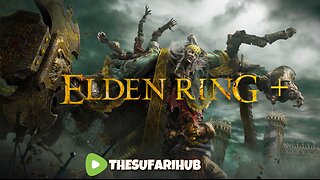Premium Only Content

Manifest Destiny
In 1845, John O’Sullivan asserted “the right of [America’s] manifest destiny to possess the whole continent for the great experiment of liberty.”
Manifest Destiny is the phrase most associated with America’s conquest of the West. In historical context, it referred to the belief that Americans were destined by God to govern the entire continent, including Canada, Mexico, and beyond.
At the country’s founding, Alexander Hamilton wanted to acquire Louisiana to “secure to the United States the key to the Western country,” and “regretted that the preparation of an adequate military force does not advance more rapidly.”
Even Thomas Jefferson wanted to send troops to the frontier to “add to the Empire of liberty an extensive and fertile country.” As president, Jefferson purchased the Louisiana territory, despite his conviction that he was violating the constitution.
By adding nearly one million square miles to the nation’s boundaries, the Louisiana Purchase revealed the first characteristic of empire: expansionism. The U.S. similarly purchased Oregon in 1846 and Alaska in 1867, reflecting the imperial characteristic of centralization. In its century as a territory, Alaskan governance was decided by politicians 3,700 miles away—that’s five hundred miles farther than London is from Boston.
Western expansion was also territorial and coercive. America’s Annexation of Texas instigated the Mexican War, a boundary dispute that cost upwards of 38,000 lives, but resulted in the acquisition of territory far beyond the Texas borders.
The war also helped consolidate the national standing army, which provided the impetus for aggressive diplomacy toward the Indians. Early western settlers frequently traded peacefully with Indians, but as the U.S. army took over Indian relations, frontier warfare intensified.
Manifest Destiny is not confined to western expansion. The core concept is the belief that a nation is morally obligated to forcefully spread its superior culture, and this has been repackaged to justify imperial warfare throughout history.
In theocratic societies, it took the form of Holy Wars, such as Crusades and Jihads. In the U.S., Manifest Destiny has traditionally expressed political ideals, such as Jefferson’s dream of an Empire of Liberty and Woodrow Wilson’s promise to “keep the world safe for democracy.”
In 1899, British writer Rudyard Kipling characterized Manifest Destiny as “The White Man’s Burden.” This was his title for a poem intended to encourage Americans to join European Empires in spreading western civilization across the ocean. Kipling published the poem in the aftermath of a conflict that marked the beginning of America’s overseas empire: the Spanish-American War.
______________________________________
Want to learn more?
For more animated content, check out Economics for Beginners at https://BeginEconomics.org.
Check out the latest Mises Wire articles on foreign policy and war: https://mises.org/topics/war-and-foreign-policy
Anatomy of the State by Murray Rothbard is a great mini-book on the true nature of the state: https://mises.org/anatomy
The Betrayal of the American Right by Murray Rothbard focuses on the history of the modern conservative movement, and the role it played in aggressively escalating America's foreign policy in the 20th century: https://mises.org/betrayal
Wall Street, Banks, and American Foreign Policy by Murray Rothbard is a fiery monograph that employs "power elite" analysis to understand the relationship between money, power, and war: https://mises.org/library/wall-street-banks-and-american-foreign-policy-0
A Century of War: Lincoln, Wilson and Roosevelt by John V. Denson is an extensive look at how the twentieth century became the bloodiest in all history: https://mises.org/library/century-war-lincoln-wilson-and-roosevelt-0
A Foreign Policy of Freedom by Ron Paul offers a positive view for an American foreign policy would look like if it stayed true to its founding principles: https://mises.org/library/foreign-policy-freedom
-
 32:06
32:06
Mises Institute
24 days ago $0.11 earnedIncubators for Socialism: Can the Universities Be Saved? | Tom DiLorenzo
2911 -
 2:34:20
2:34:20
vivafrei
11 hours agoEp. 257: More ROGUE Judges! More Deportations! Candace v. RFK Jr.? Wisconsin Election & MORE!
121K165 -
 2:27:35
2:27:35
Nerdrotic
4 hours ago $5.78 earnedGobekli Tepe Coverup, Pyramid Structures w/ Jimmy Corsetti & Wandering Wolf | Forbidden Frontier 096
22.6K13 -
 LIVE
LIVE
Man in America
9 hours ago50 MILLION Illegals: The TIME BOMB Threatening to Destroy America w/ J.J. Carrell
567 watching -
 LIVE
LIVE
Tundra Tactical
1 hour agoThe Worlds Okayest Gun Live Stream
136 watching -
 LIVE
LIVE
The Sufari Hub
2 hours ago🔴ELDEN RING MODDED - ROAD TO #1 GAMER ON RUMBLE - #RumbleGaming
145 watching -
 LIVE
LIVE
thatsnotkyle
1 hour agoPUBG | Chicken Dinners
218 watching -
 54:47
54:47
Sarah Westall
5 hours agoTranshumanism vs Natural Human Zones, AI consciousness and the Hive Mind Future w/ Joe Allen
38.2K5 -
![[LIVE] The Sunday Surprise! | Counter Strike w/ Omega (Meisters Madness)](https://1a-1791.com/video/fww1/70/s8/1/U/P/W/x/UPWxy.0kob-small-LIVE-The-Sunday-Surprise-A-.jpg) LIVE
LIVE
Joke65
3 hours ago[LIVE] The Sunday Surprise! | Counter Strike w/ Omega (Meisters Madness)
76 watching -
 LIVE
LIVE
MaverickLIVE
2 hours agoFirst Rumble Stream!
107 watching